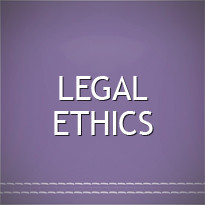A.C. No. 4355 – 868 Phil. 171 – Legal Ethics – CPRA; Canon 2; Propriety – Prohibition against self-promotion – Lawyering is not a business
Atty. Aguirre was a lawyer for Tala Realties while Atty. Reyes was lawyering for the minority stockholders of BF Homes. In 1994, Atty. Pedro Aguirre filed a disbarment case against Crispin Reyes on the ground that Atty. Reyes issued certain legal documents that put the Supreme Court in a bad light. Atty. Aguirre alleged that in a memo that Atty. Reyes sent to the Board of Directors of Banco Filipino, Atty. Reyes stated that he (Atty. Reyes) was instrumental in winning a Supreme Court case which resulted in the re-opening of Banco Filipino. Further, Atty. Reyes also stated that he made a special arrangement with the Supreme Court for purposes of ensuring the win but such confidential information should not be disclosed to small minded men like the vice-president of BF Homes.
In his answer, Atty. Reyes did not deny writing the legal document. He explained that he did the same to protect his name. Atty. Reyes even described his writing as apt, vivid, picturesque, proper, and elegant.
Nothing much happened in the disbarment proceeding as both parties alternately requested for resetting.
In 2013, Atty. Aguirre died. In 2018, the IBP Committee on Bar Discipline recommended the dismissal of the complaint against Atty. Reyes (a centenarian by then) by reason of the death of the complainant.
ISSUE: Whether or not Atty. Reyes should be held administratively liable.
HELD: Yes. Disbarment proceedings are sui generis. The death of the complainant does not automatically warrant the dismissal of the case.
Atty. Reyes is administratively liable but disbarment is too severe a penalty.
Atty. Reyes is liable for making false statements in his memo. The specific statements pertain to Atty. Reyes claiming that he was “instrumental in winning the Supreme Court case” and he made “special arrangements.” These statements not only put the Court in a bad light, they too, purportedly amounted to ”false, fraudulent, misleading, deceptive, undignified, self-laudatory or unfair statement or claim regarding his qualifications or legal services.” The statements are undoubtedly self-laudatory, nay, undignified. The standards of the legal profession condemn the lawyer’s advertisement of his talents. A lawyer cannot, without violating the ethics of his profession, advertise his talents or skills in a manner similar to a merchant advertising his goods. The proscription against advertising of legal services or solicitation of legal business rests on the fundamental postulate that the practice of law is a profession.


